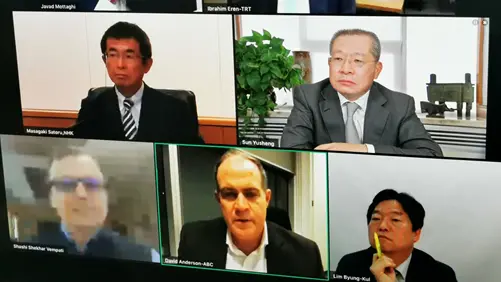Broadcasters from six countries in Asia — China, Turkey, Australia, India, Japan and South Korea, have agreed that the media have a responsibility to present the truth, reduce panic and debunk groundless claims during the pandemic. Six media executives took part in a video conference held by the Asia-Pacific Broadcasting Union (ABU) on how to better serve the public during the COVID-19 pandemic and beyond.
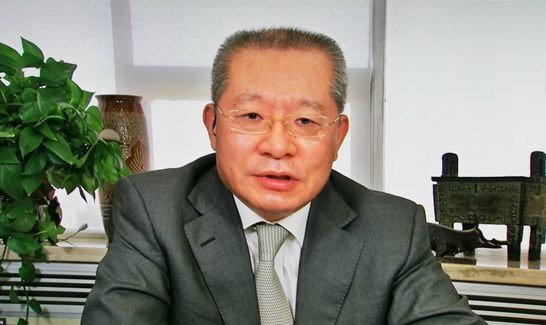
Asia-Pacific Broadcasting Union Vice President Sun Yusheng said amid the challenges brought by the pandemic, delivering a responsible voice to the international community through objective and fair reports is the key to refuting groundless claims. /CGTN
ABU Vice President Sun Yusheng said amid the challenges brought by the pandemic, delivering a responsible voice to the international community through objective and fair reports is the key to refuting groundless claims. Sun is also a member of the editorial board of China Media Group (CMG).
"I agree with you that information must be true, accurate, objective and fair. This is directly related to the the survival of our entire media and our credibility. This is also our responsibility," Sun emphasized.
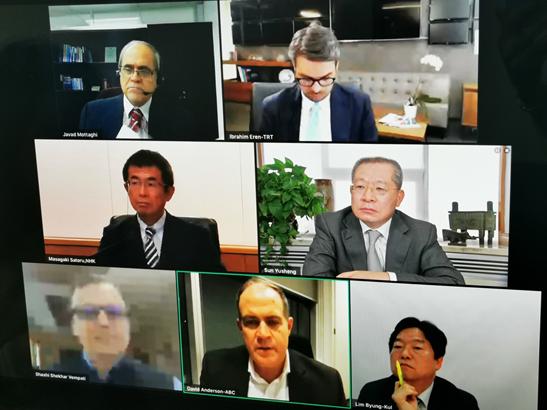
The Asia-Pacific Broadcasting Union held an online video conference on how to better serve the public during the pandemic and beyond. /CGTN
Since the outbreak of COVID-19, CMG has deployed more than 5,500 people for news gathering, editing and broadcasting. It also sent a team of 216 people to the front line of the epidemic in central China's Hubei Province for covering news. They aptly carried out interviews and reported on epidemic containment efforts. Reporters and anchors have played a key role in extensively covering the COVID-19 pandemic.
"These reports have played an important role in sharing the experience and strengthening the confidence in the fight against the pandemic," Sun said.
Shashi Shekhar Vempati, CEO of India's public service broadcaster Prasar Bharati, said it's very important to expose false information about the pandemic and present accurate information.
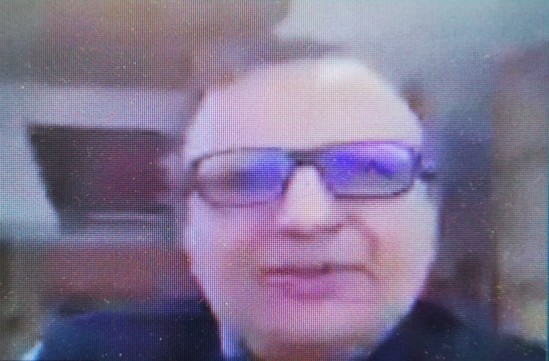
Shashi Shekhar Vempati, CEO of India's public service broadcaster Prasar Bharati. /CGTN
"In response to rumors, we are making sure that the information spreads effectively and that the right information is delivered to the people. We have been monitoring social media and digital websites to see what kind of wrong information has been circulating, so as to quickly speak to the experts and put on the right information," Vempati said.
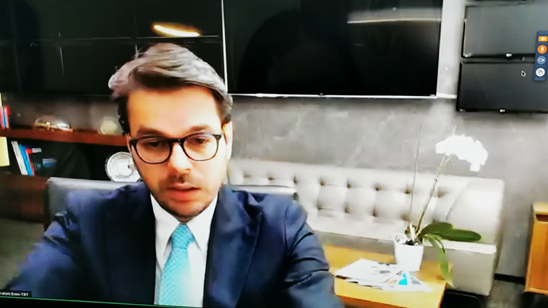
Ibrahim Eren, acting president of Asia-Pacific Broadcasting Union and director general and chairman of Turkish Radio and Television Corporation. /CGTN
Ibrahim Eren, acting presidentof ABU and director general and chairman of Turkish Radio and Television Corporation (TRT), said precautions were taken in the last week of February by the newly established internal crisis management committee of TRT, and brand new and innovative programs have been made to serve the people.
"When schools were closed, a distance learning infrastructure was created with the National Education Ministry by TRT in a very short time. Until now, 3,344 online lessons have been broadcasted through TRT EBA TVs. Ten studios were used inside TRT Ankara and Istanbul campuses and many schools. For the upcoming fall school term, it has been planned to broadcast 4,500 online lessons until the mid-term break," said Eren.
The six speakers also shared their experiences in providing a variety of programs to educate children online, and keep people mentally and physically healthy during the crisis. They also stressed the importance of the digital new media's role in covering the pandemic situation.
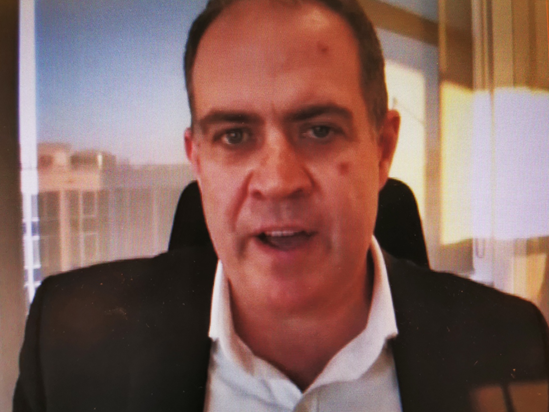
Australian Broadcasting Corporation Managing Director David Anderson. /CGTN
Australian Broadcasting Corporation (ABC) Managing Director David Anderson said: "During this time, we could see the mental health is a prevailing issue for our population. COVID-19 lockdown and isolation have only increased people's need for mental health support. So, the ABC has been running mental health campaigns to provide resources to people with vacant access during this time."
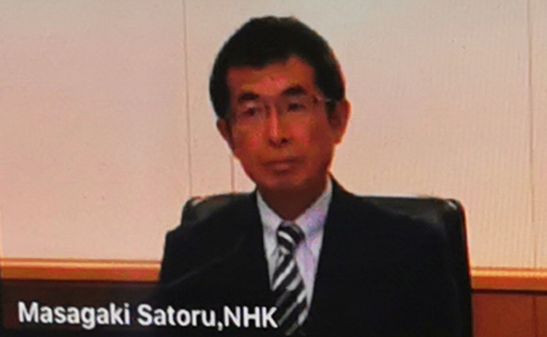
Masagaki Satoru, executive vice president of Japan's public broadcaster NHK. /CGTN
Masagaki Satoru, executive vice president of Japan's public broadcaster NHK, said it's media's responsibility to deliver reliable, trustworthy and factual information to the people. "It's important to offer detailed responses to questions and problems people face everyday, and it's also necessary to stay closely connected and encourage and inspire people in these anxious times," said Satoru.
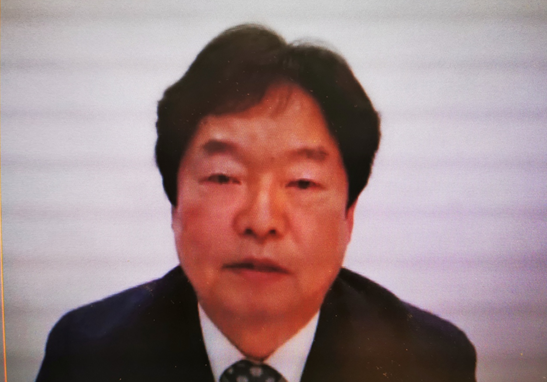
Lim Byung-kul, executive vice president of Korean Broadcasting System. /CGTN
Lim Byung-kul, executive vice president of the Korean Broadcasting System (KBS), briefed the meeting on KBS' response to COVID-19. "KBS has delivered information on prevention measures, and established the COVID-19 Integrated Newsroom to conduct 24 hour emergency operation and provide wide-ranging program packages, documentaries and other materials in an innovative way to help the people fight the pandemic."
Participants also took questions from the moderator and the viewers, and they agreed that the media should play a bigger role in deepening consensus and strengthening cooperation in the fight against the pandemic.
 简体中文
简体中文

